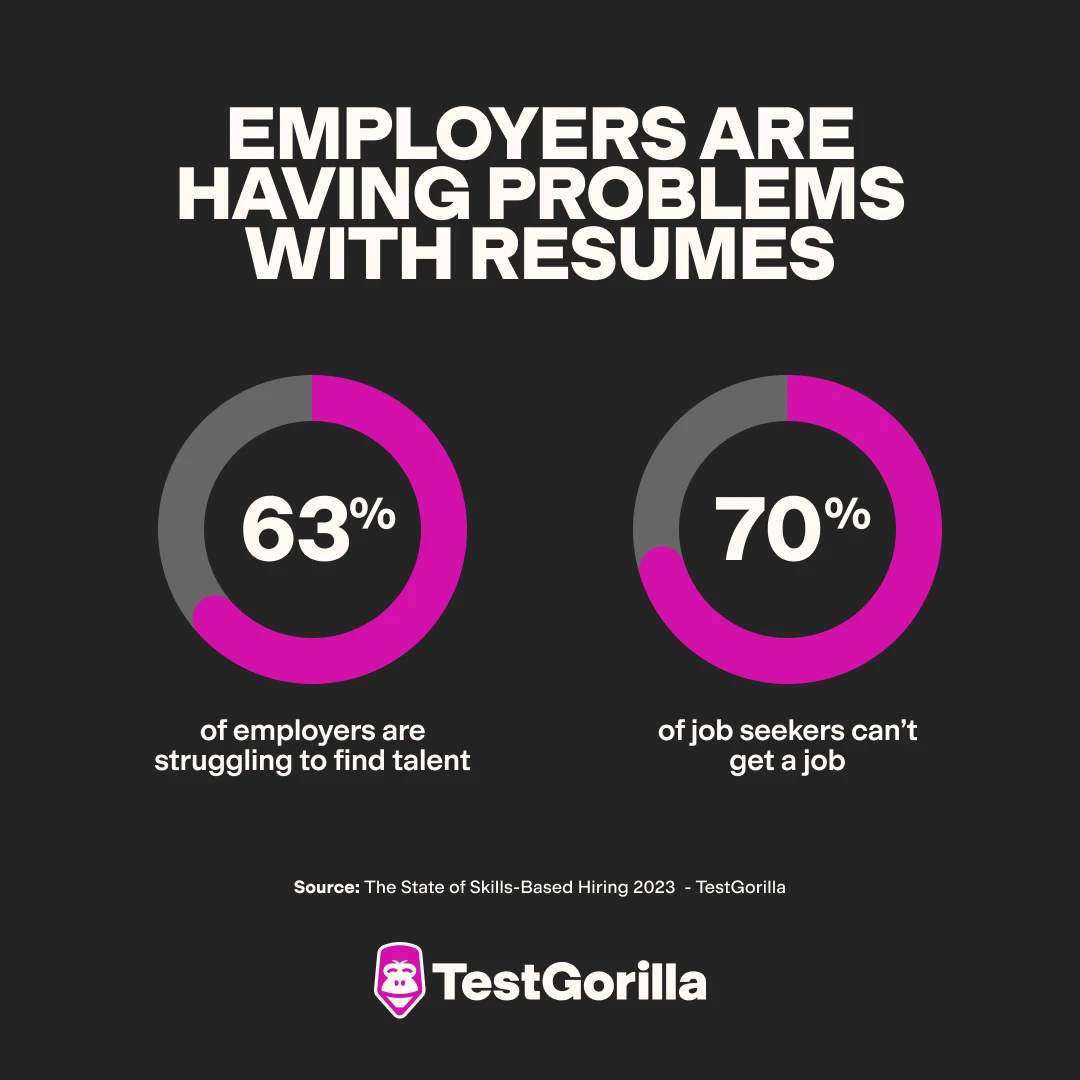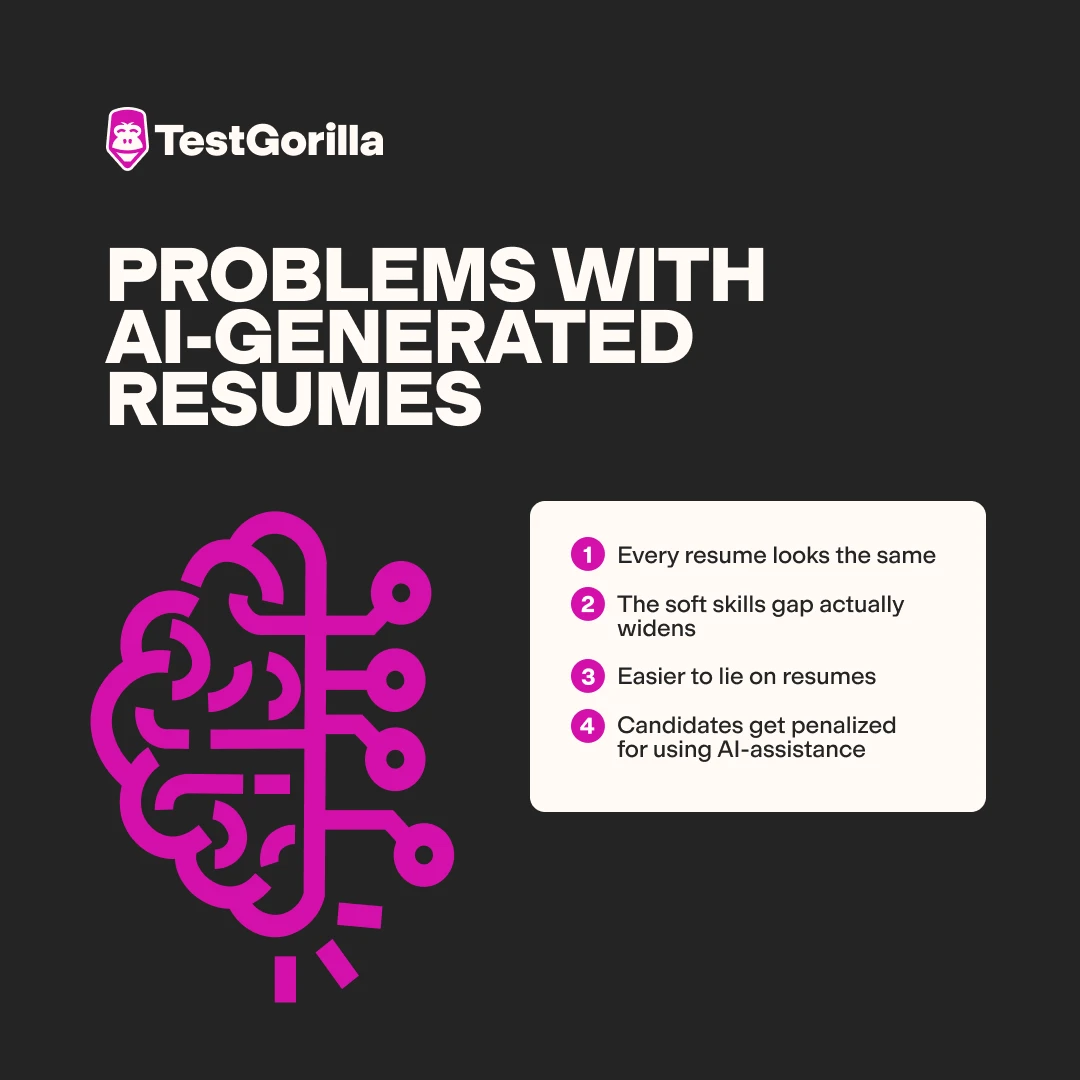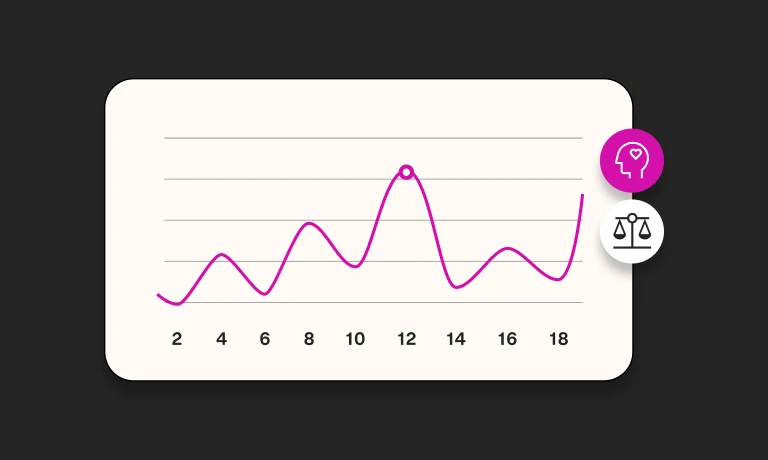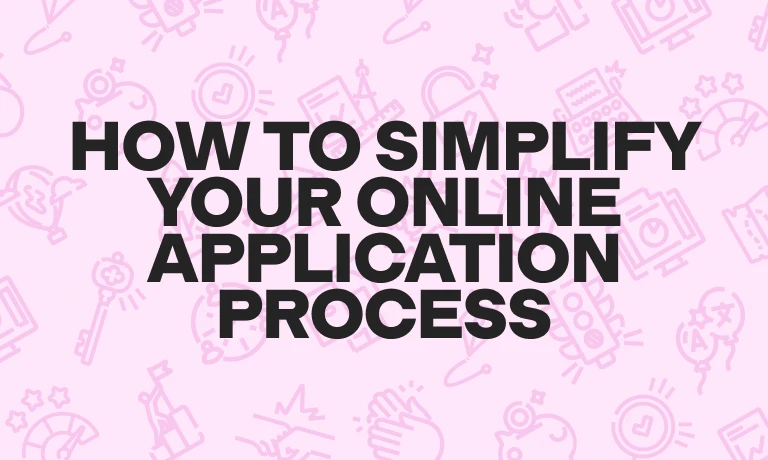Time to look beyond resumes? Here's what experts say about sourcing's paper gatekeeper
In 1482, Leonardo da Vinci wrote a letter to the Duke of Milan to earn his patronage. The letter was essentially a summary of his skills, strengths, and achievements in engineering, design, and weaponry. He aligned it closely with the needs of the Duke, which got him the patronage.
Historians credit da Vinci with crafting the first resume. Cut to the 20th century, when industries and corporations were growing quickly. Resumes became a norm in the art of pitching one’s capabilities and a saving grace for companies looking for a way to compare applicants at scale.
"But today? That same piece of paper is far less effective," says Yashna Wahal, an HR and hiring expert with over a decade of experience across multiple sectors and locations. "Careers are no longer linear, skills are evolving faster than job titles, and soft skills – arguably among the most important needle-movers – aren't typically discussed in a resume."
Shockingly, despite considerable innovation in talent sourcing, many employers are still relying on resumes to build their talent pipelines. "I’m not sure if it’s just habit or a fear of change, but some employers just haven’t moved on and it’s costing them dearly," Yashna says.
In our latest The State of Skills-Based Hiring report, we found that 63% of employers are struggling to find talent, while 70% of job seekers can’t get a job.
A big part of this stems from employers using resumes alone to source candidates, which lowers their chances of finding good matches. Companies keep searching. Candidates keep applying. And the gulf between the two only widens.
I put my theory to the test by speaking to several industry experts about the role of resumes in sourcing today, what works, what doesn’t, and what the road ahead looks like.
Table of contents
The cracks are starting to show
89% of employers are having problems with resumes in 2025.
More than half said they struggled to determine the accuracy of resumes – which is a problem since several job seekers lie on their resumes. This may be one of the resume's most fatal flaws: It's hard to know what's real and what's inflated.
Another 43% of our respondents said they found it hard to rank applicants fairly, and the same proportion said they couldn’t determine candidates’ skills from resumes.
In addition to the fact that it's time-consuming and tedious to screen resumes, the resume is also failing at its core purpose.
What the modern resume fails to capture
Chris Kisksey, CEO at Direction.com, argues that much of the problem with today's resumes comes down to what resumes spotlight. "Resumes focus on job titles and education, but they do not show what someone can actually do."
But it’s Tracy Thornton, Chief People Officer at the DDC Group and CIPD fellow, who explains what the crux of the problem is: "Resumes give hiring managers an idea of what the candidate has achieved, but not what they might actually be capable of,” she says. “Have they had the opportunity to really show what they can do in their current or previous roles?"
Lauren Salton, a talent acquisition expert at TestGorilla, asks a similar question about soft skills.
"If you're only looking at CVs, for example, what is it that you're going to draw out that is important to you as a team? Is it that they've got good communication? How are you finding that in a CV?"
Does the resume's standardized format make it a fairer way to compare candidates?
On the surface, resumes follow the same structure: contact information, education, work experience, and hobbies and interests.
While this standard layout makes it easier for recruiters and hiring managers to read information, and this information is undoubtedly important in later stages of the hiring process, it doesn’t necessarily make for better sourcing decisions.
Not all candidates are good at the art of resume writing
Tracy said something very interesting about this.
"Talented people who might suit the business well can be overlooked because they didn’t quite get the resume right in order to capture the hiring manager’s attention… this is definitely a great limitation when hiring… we want talented people with the right skills in the right roles and I fear we could easily miss out on individuals who fit that profile just because they might have undersold themselves in their resume."
She explains: “it's difficult to articulate [one's strengths] in writing sometimes, especially if you are not writing in your first language and/or you are trying to keep the resume succinct."
Not all employers want the same thing
Even for candidates who get the wording right, the goalpost might shift depending on the employer. Sarah Doughty, who’s worked with hundreds of clients and is a recruitment advisor at TalentLab, told me:
"I think a really good recruiter, or even a very good sourcer, would say there’s no one way to do your resume. Every company is going to have a slightly different list of requirements. Some companies are going to heavily weigh culture. If they are, that can be really difficult to articulate on a resume.
“And if you over-articulate it – especially in high-tech, which TalentLabs focuses on – it could actually be a negative,” Sarah explains. “They might say, ‘Is this person even technical? They're going on and on about collaboration and conflict resolution, but I want to see how they build a feature.”
Pedigree over potential?
Ben Rose, Founder and CEO of CashbackHQ, told us: "The biggest problem with resumes is that they usually put pedigree ahead of potential. Many good candidates are turned down because their resumes don't indicate what they can accomplish well." Yashna agrees: "The reality is, the system is stacked against those who can't afford a college education, aren't well-connected, or simply don't know how to play the game.”
“You might believe that college graduates are stronger than those who took alternative learning paths,” she explains. “But time and time again we've seen that one's degree has nothing to do with work success, so you could easily miss out on sourcing the best talent if their experience doesn’t come wrapped in the 'right package.’”
What about good sourcers? Can you rely on them to read resumes the "right way?"
The short answer is no.
I recently came across a Business Insider article that I couldn’t shake off. In the piece, Sophie O'Brien, Founder at Pollen Careers, shares an anecdote about how candidates can even be picked based on the football team they root for. "I remember occasions in my old job where I'd be looking at CVs, and then somebody would look over my shoulder and be like, Oh, they're an Arsenal supporter, get them in."
And let's not forget racial biases. In one study, some researchers sent more than 80,000 fake profiles to US companies and found that decision-makers preferred candidates with white-sounding names.
Even good sourcers, who're well aware of thier biases, can still succumb to them.
Modern solutions are creating modern problems
One can argue that if all of the problems above boil down to issues with how candidates write resumes or how sourcers read them, maybe the resume itself isn’t broken – perhaps humans are just using it wrong.
But if that's the case, why is AI not solving the problem?
Are AI-generated resumes easier to assess?
AI tools can format candidates’ resumes in seconds, polish awkward wording, and tailor semantics to each company’s job description – making it easier for you to read resumes from those who struggle with summarizing their skills and strengths, deal with language barriers, or just aren’t good at the art of self-promotion.
But if you dig deeper, you’ll see that AI resumes are creating much bigger problems than they’re solving.
Everyone looks the same
When every resume looks the same, how can you see who stands out? On what basis are you deciding who to add to your talent pool?
This is an ongoing topic of discussion here at TestGorilla. Israel Adetuwo, one of our Product Designers, says, "I think that AI-generated resumes have made most resumes lose their personal touch and originality. Most resumes now look pretty much the same, often with the same verbose words used."
The soft skills gap actually widens
We’ve already heard from our TA expert, Lauren, that resumes are weak at showcasing soft skills. Matthew Warzel, President of MJW Careers, seems to believe this is even worse for AI-resumes, which mute job seekers' individual communication styles, according to a Forbes report. "AI may not fully capture the candidate’s personality or the nuances of their career journey," Matthew states.
Ultimately, this makes it hard for sourcers to get any insights into the candidate's unique traits, thought processes, and communication skills.
Risks associated with AI-generated resumes
Wynter Johnson, Founder and CEO at Caily, was the first of the experts to bring this up. "It's always been easy to lie on resumes, but with AI-generated resumes, candidates can do it a lot more quickly and easily. This means that we have a huge volume of dubious documents to comb through to find good candidates."
If human-written resumes are already prone to inflation or even outright deception, AI can make this far worse. This can lead to even more work for sourcers to find the right talent and create a trust issue between employers and candidates who use AI to write their resumes.
Even skilled candidates are getting penalized for using AI-assistance
We found that while more than seven in ten employers claim to notice more AI-generated resumes, fewer than four in ten applicants report using them. The harsh reality is that more than 50% of employers admittedly reject candidates who could be using AI to craft their resumes.
Roy Andraos, CEO at DataVLab, warns us of the danger of this: "Suspicion around AI use can introduce bias in screening. Recruiters may dismiss thoughtful applications because they 'sound too polished,' even if they’re sincere."
What about AI-powered sourcing? Does it solve for biases?
Today, most resumes will be passed through AI.
The hope is that AI will eliminate human biases and help sources build their talent pools quickly, and there's no doubt that AI tools speed up resume scanning and decision-making. But studies have shown that AI tools create and perpetuate biases.
Amazon, for example, had to stop using its AI-powered resume screening tool after it was found to favor male over female candidates for technical positions.
The best insights on HR and recruitment, delivered to your inbox.
Biweekly updates. No spam. Unsubscribe any time.
The better way to source? A skills-first approach
Instead of relying on what candidates write about themselves on a piece of paper, skills-based sourcing focuses on testing what they can actually do.
This could mean using online assessments, job simulations, or other practical exercises that mirror the tasks or the skills they’ll need to perform them successfully.
According to Yashna, online tests are the most popular way to source for skills.
"You can assess people on virtually anything – technical skills, soft skills, personality traits, cognitive abilities, and even how they’ll fit your culture – before adding them to your talent pool. This way, when you’re ready to recruit, you can tap into a database of skilled talent suited to your needs."
Tracy also believes that skills-first sourcing cuts through the fog of bias, exaggerations, and misleading credentials.
"Utilizing tools such as skills assessments or job/task simulations provides a more objective approach…moving away from a reliance on a gut feeling or the unconscious bias we know can still happen on resume review alone," Tracy says.
And because the focus shifts to ability rather than education, you’re also more likely to have a diverse pool. Tracy adds, "This type of process for recruiting will focus more on the candidates’ abilities and less on whether a candidate has had a traditional career path or education and can help a more objective hiring decision.”
And other experts have seen the benefits first-hand.
"We no longer use resumes but rather have the candidates do tasks that will reflect what they will be doing in the job…This allowed us to find people who exactly fit the job position," Faraz recalls.
This is a fantastic strategy for sourcing active candidates for your open roles or those who’ve expressed an interest in working with your company in the future. But task simulations and online testing aren't feasible methods of sourcing passive candidates at scale. Luckily, there’s another way to do this with pre-vetted sourcing pools.
TestGorilla’s sourcing tool is a large database of candidates who’ve already been tested and tagged with verified skills, so you can pick your criteria and find suitable candidates instantly. It’s quicker, more effective, and a much fairer way to source than relying on resumes or blindly relying on other AI tools.
Resumes are sticking around for now, but where you use them will make all the difference
By now, there’s more than enough proof that resumes have become a barrier to good sourcing – especially when they’re used solo. They’re riddled with biases, gaps, and inflations that make it very hard to separate fact from fiction. And, employers are beginning to notice.
Sophie O’Brien from Pollen Careers put it bluntly in a recent interview: "I said I'm not going to look at a single CV. I don't care what your academic background is. I don't care about your work experience history."
While her words reflect a growing frustration among sourcers and recruiters, the reality is that resumes aren’t going to vanish into thin air overnight. They’re too deeply ingrained in recruitment.
In fact, our own survey showed that despite switching to skills-based methods, most employers still lean on resumes in some form. What mattered, however, wasn’t whether they used them but when they used them. About 33% said they used skills testing before looking at resumes, while 67% said they assessed skills after screening resumes.
Unsurprisingly, those who used a skills-first approach ended up happier with their selections than the others.
Why? Because they used skills-first methods to attract the strongest candidates upfront, while resumes served as a supplementary check – a way to add context to candidates’ journeys.
The message for employers is clear, according to Yashna. "Resumes filter people out. Skills bring people in. If you want to discover the cream of the crop, you can’t afford to rely on resumes alone."
You've scrolled this far
Why not try TestGorilla for free, and see what happens when you put skills first.




















